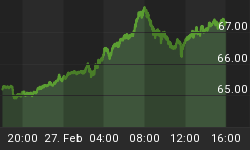Social distancing is harder than you might think for some. Divorce filings are surging presumably because married couples aren’t used to spending this much ‘quality time’ together or dealing with coronavirus-related financial stress, and teenagers or other youth with too much energy to expend insist they will go mad. Some think, or hope, it will all end in two weeks with Trump controversially suggesting that he wants things back to normal by Easter, but new computer modeling research from Harvard University warns that it may be necessary for social distancing measures maintained into 2022 in the U.S. barring the arrival of a vaccine or feasible drug therapies.
With the aggressive rise of cases across the United States--at last count, 61k300+ and 846 deaths, according to CNN--more aggressive quarantine measures could be put into place.
“This is because while a one-off period of social distancing might delay the peak of the outbreak until later this year, there is likely to be a resurgence in cases towards the end of the year if the virus shows some seasonal variation,” the paper said.
And it could be made worse by those who refuse to obey recommendations and even orders.
Despite the fact some states imposed stay-at-home order, people--mostly youth--continue to violate it. That has led some officials to propose rigorous measures against the violators, including jail time and fines.
Meanwhile, police forces are stretched to limit in trying to enforce these orders, but social media data is at least helping citizens check how people in their community are behaving.
It’s potentially a bit ‘Big Brother’, and eerily reminiscent of China’s ‘social media credit’ system except that it’s not pinpointing individuals--only states and counties. It’s also a nice bit of PR for the company behind the data dump.
Unacast, a location data and analytics firm, launched the Social Distancing Scoreboard showing mobility trends by county or by state. The Scorecard assigns a letter grade of A through F to all states and counties in relation to social distancing behavior.
Currently, the District of Columbia has a “A”, followed by Alaska, Nevada and New Jersey. The bottom five states in terms of social distancing were Oregon, New Mexico, Idaho, Montana and Wyoming. Wyoming is also the only state to earn an “F”.
As for counties, five of them in Alaska have an “A” so far, while Baca, Colorado, and Baker, Oregon, are failing.
Related: Space Robots Could Help Colonize Mars
The company said they do not identify individual people, devices or households but that the data is collected based on GPS location.
In the UK, the Guardian reported that some mobile phone service providers have discussed with the government an initiative to provide data on citizens’ movement during the lockdown. Italy and Austria are also enlisting location data from mobile phone networks.
For now, the intentions are genuine, because without social distancing we won’t be able to “flatten the curve” and delay the spread of the virus so it is more manageable.
Different countries have taken different approaches to prevention strategies, with some focusing on social isolation only of those most at risk, and some making distancing a blanket rule.
The unfortunate fact is that without social distancing, one infected person is likely to pass on the virus to two or three others. And within a month, one case can turn into 244. In two months, that soars to 59,604, according to the computer model made by Imperial College London.
The paper found that without any measures at all the United Kingdom could face 510,000 deaths, while the U.S. could expect 2.2 million from Covid-19.
But a ‘Big Brother’ data drive could easily get out of hand once the dust settles on the pandemic. Once you let this cat out of the bag, data collection and distribution can be addictive and it will be very hard to put it back.
By Michael Kern for Safehaven.com
More Top Reads From Safehaven.com:
















